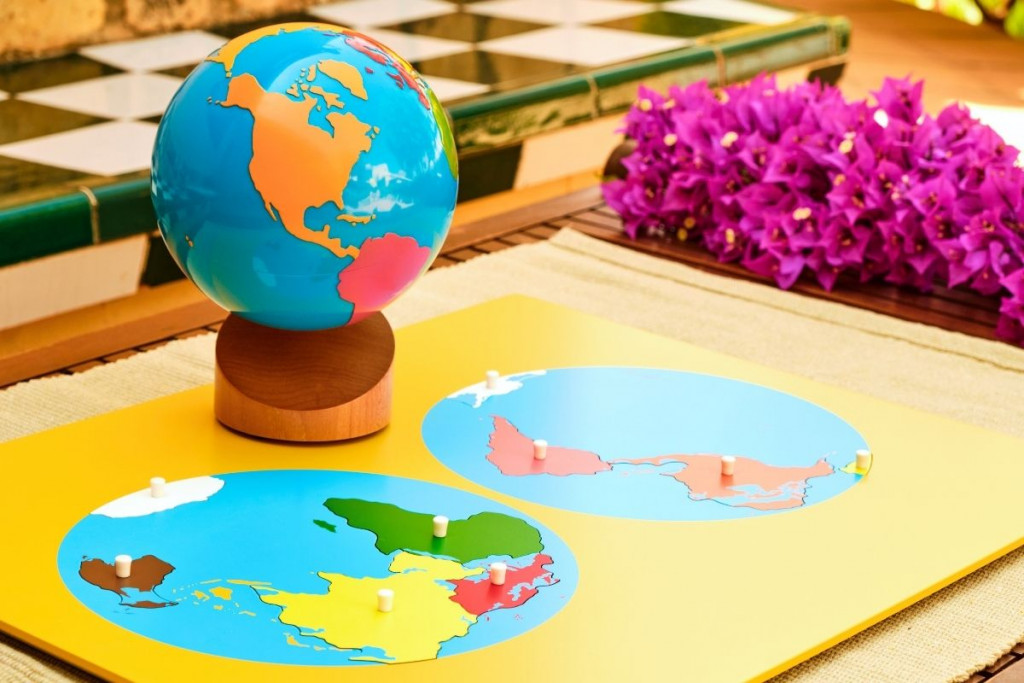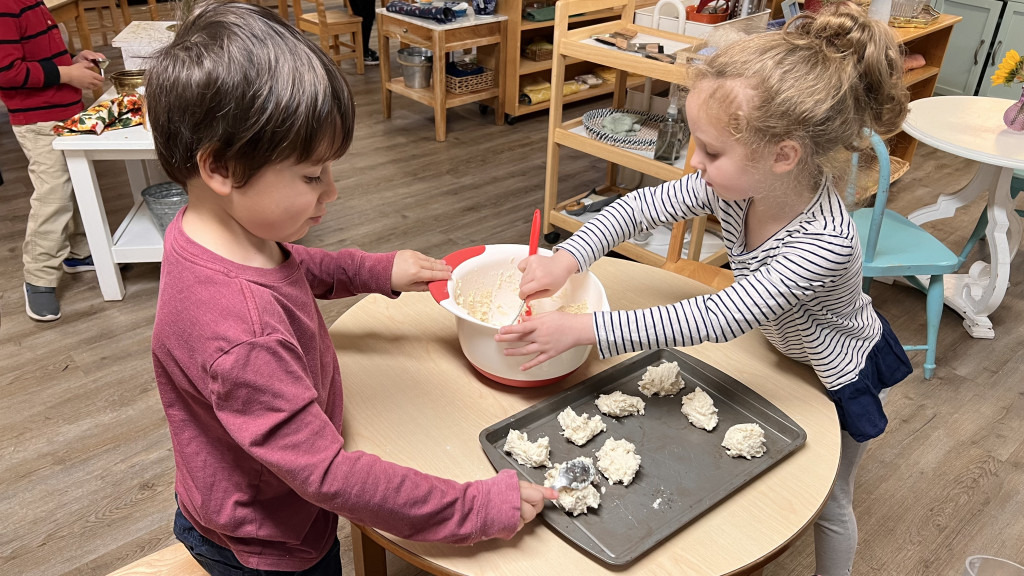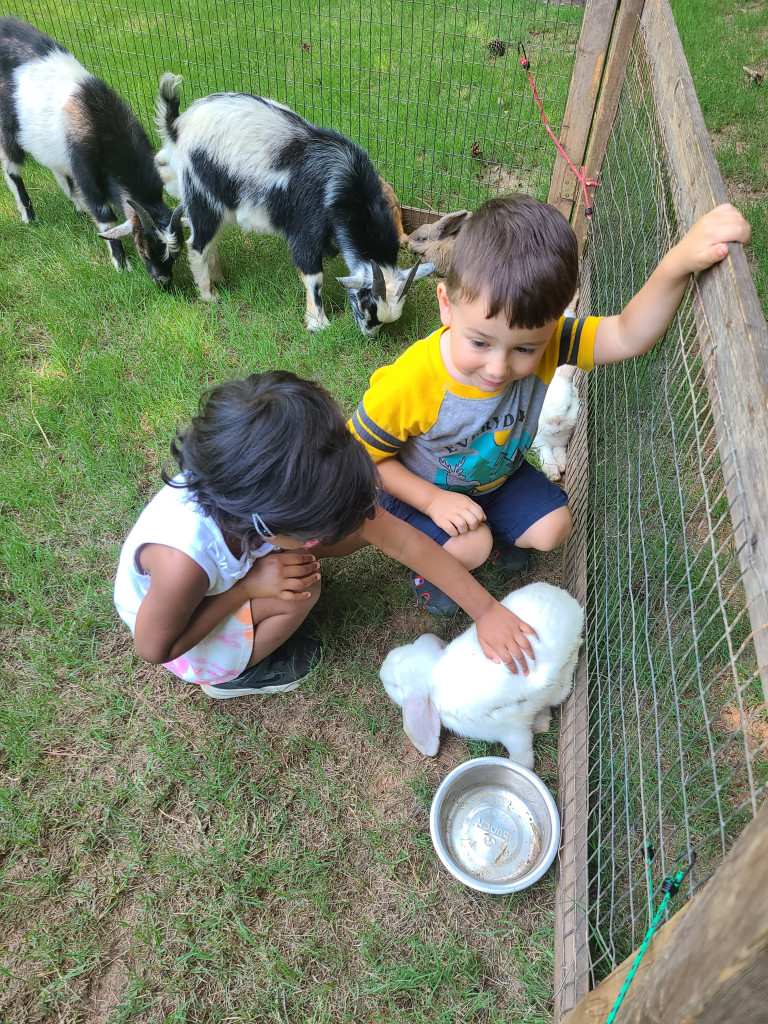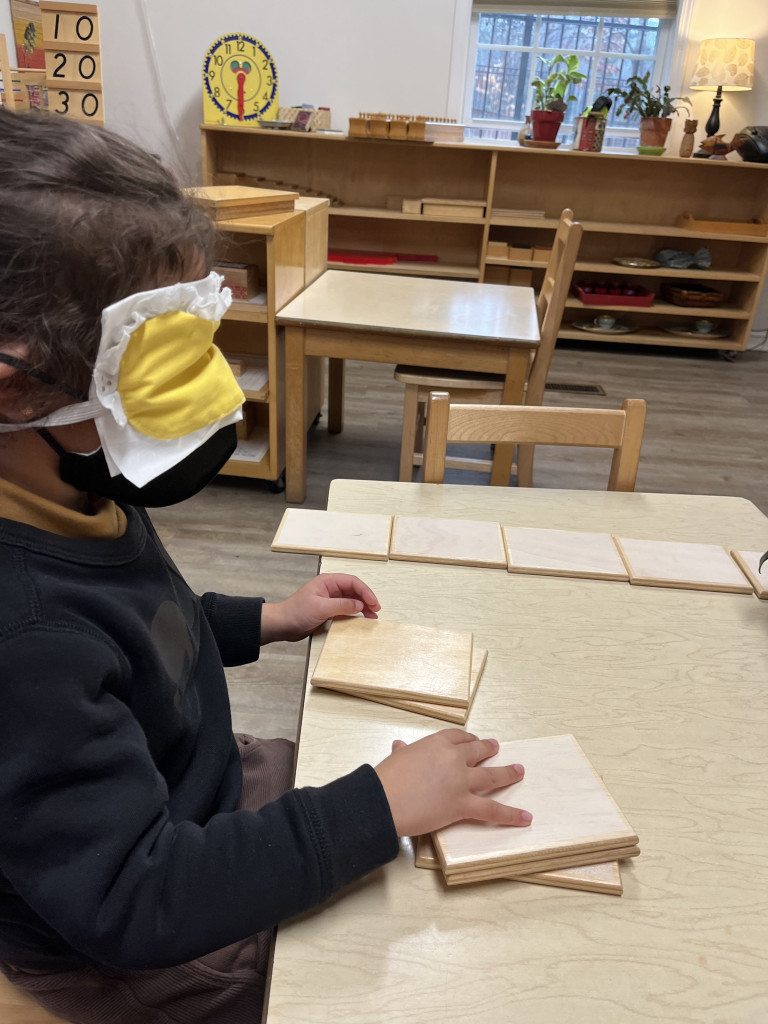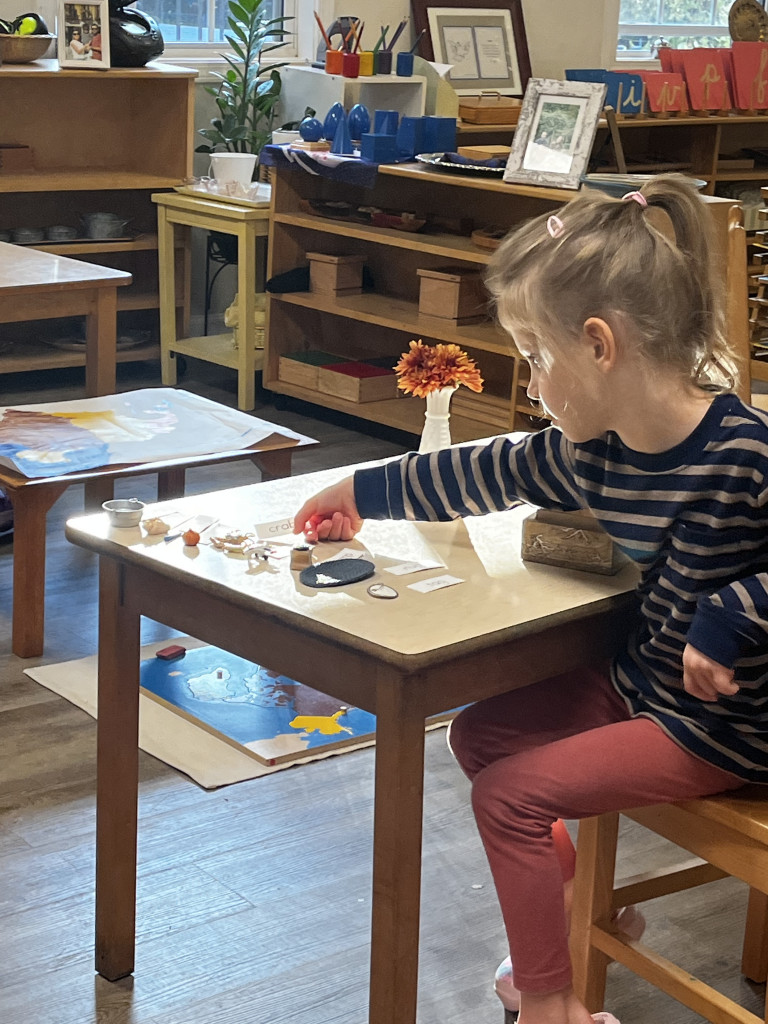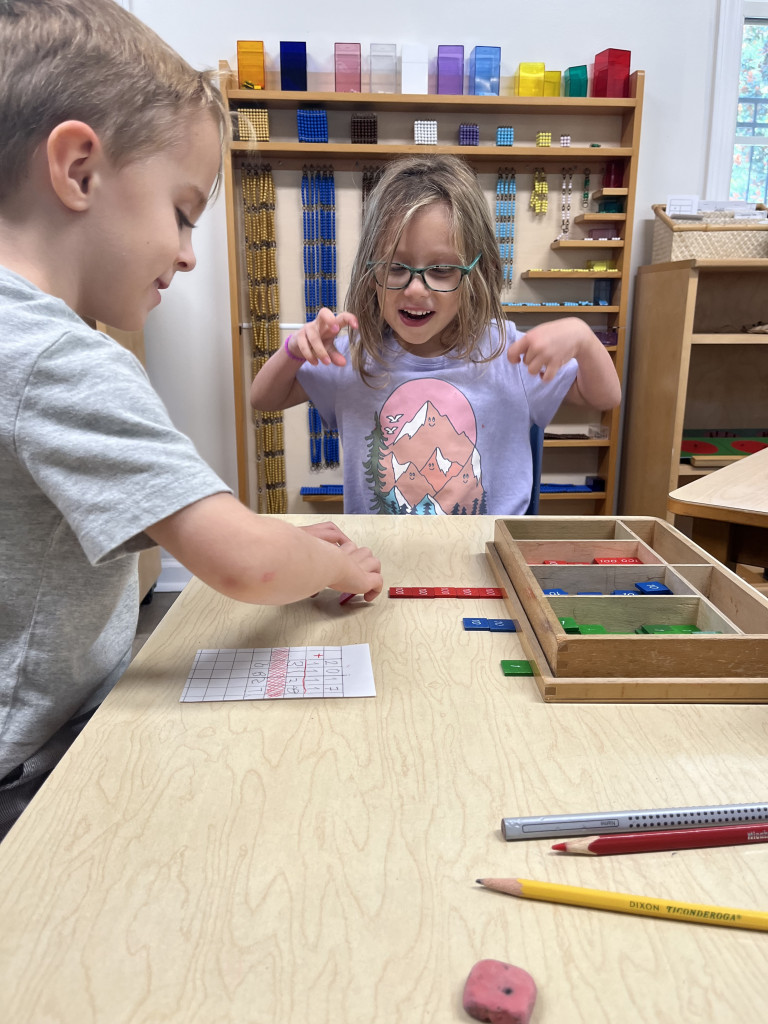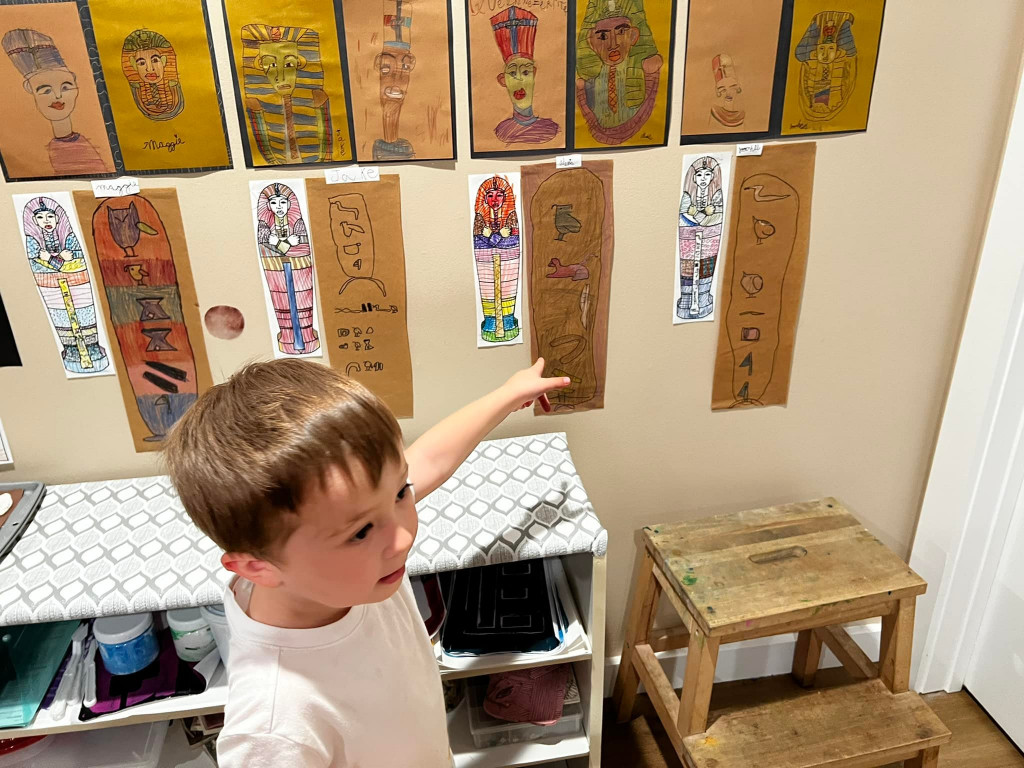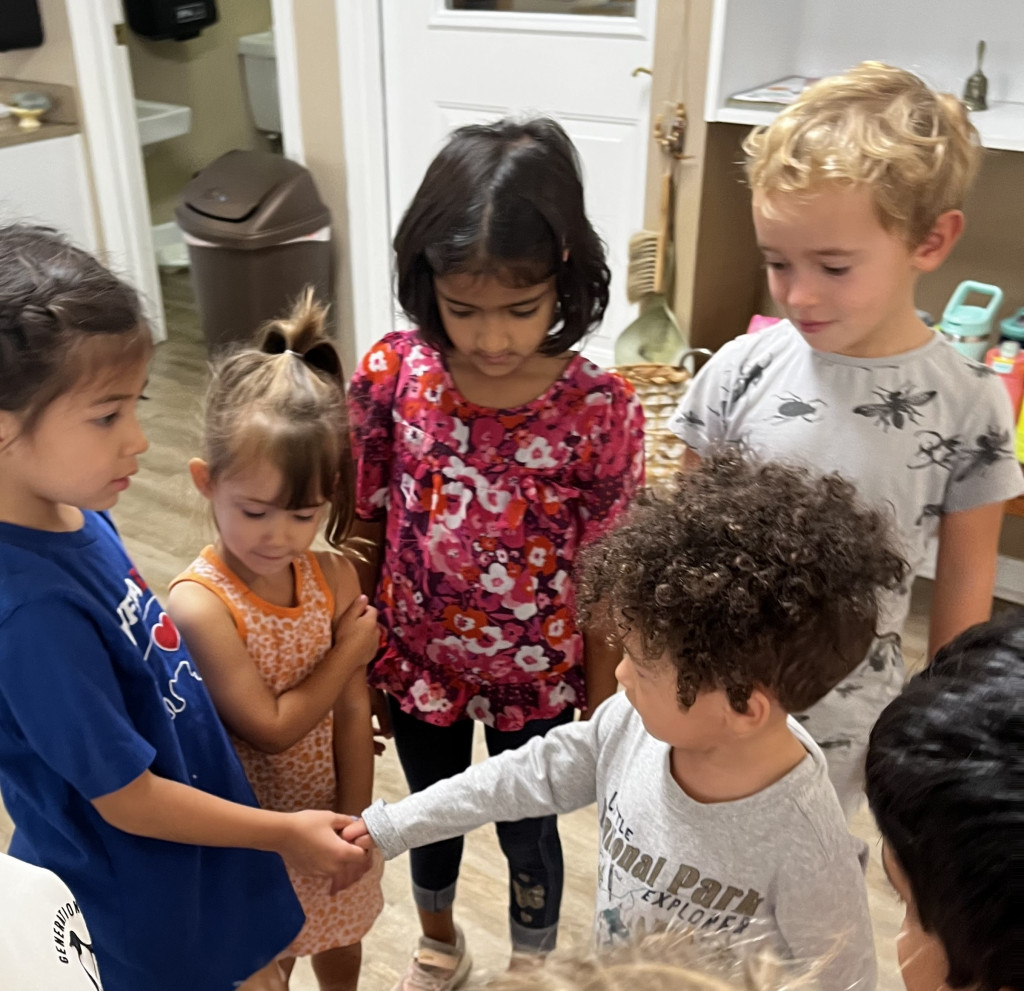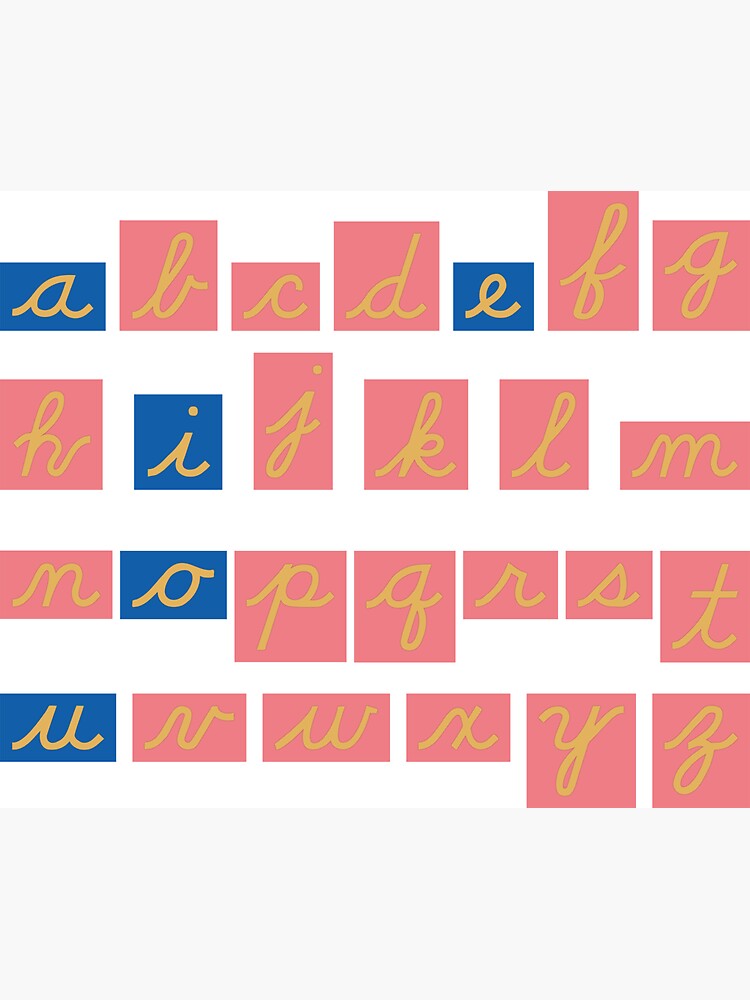
Primary
Children have a kind of instinct, a special sensibility, which urges them to acquire new words. Between three and five years especially, the child’s mind continues to absorb words.” — Dr. Maria Montessori
Primary Program (Ages 3 – 6+ years)
Village Montessori School offers three different community programs for children ready to begin the Primary curriculum. The importance of completing this 3-4 year cycle is crucial, as each year builds into the next.
Book a School Tour
Primary Curriculum
The first year of AMI Montessori primary is an introduction to the new environment and social acclimation. A secure foundation of self-discipline, independent functioning, and self-confidence is formed. The second year is a consolidation of skills and knowledge and a growth in competence and self-assurance.
The last years are ones of unfolding and mastery. This is the time you see the traditional types of learning, such as reading, writing, and math computations come to fruition.
These skills are actually a by-product of the more important foundational characteristics, such as independence, self-motivation, and concentration that the child has internalized and will possess throughout his lifetime.
Hands on learning is a hallmark of the Montessori classroom.
The Primary curriculum consists of six distinct areas:
Practical Life
Activities concerning care of oneself, the environment, and others are cultivated. These exercises lay the groundwork for independence, help develop concentration, and further refine their coordination. Many of these tasks, like sweeping or buttoning, can be seen performed by adults during the child’s daily routine. Purposeful activities, with tools of the right size for small hands, allows the child to satisfactorily repeat a task until mastered.
Sensorial
Making sense of all impressions received through the five senses is the goal of this area. Exercises are designed to begin putting order in the world around them through sorting, categorization, naming, and then application of concepts. Abstract mathematical qualities are introduced through the use of concrete materials.
Language
Learning in this area begins from the moment the child enters the class and does not end until they graduate at age 6 years old. Activities are first designed to expand a child’s receptive and expressive language, as well as, to further their exposure to a variety of linguistic opportunities.
The experience of watching older children engaged in writing and reading activities intrigues the younger child and entices them to join in these lessons, too. This makes learning to read and write a natural process of acquisition. Grammar, spelling, and sentence analysis work further develops the older child’s understanding of the written word.
Math
The foundation for math actually begins in the Practical Life and Sensorial areas. To this base of knowledge is added counting, number relationships, the four operations, fractions, geometry, and even algebraic concepts. Through manipulative materials, the child experiences concepts in concrete form, which prepares them for later abstract reasoning and problem –solving.
Cultural Studies
Geography, sciences, art, and music are all integrated seamlessly throughout the curriculum. As the child’s understanding of the world begins to turn outward, activities are designed to help connect them with our global community. Lessons about the natural world allow children to embrace the role of caretaker. Additionally, art and music activities give the child an opportunity to see, hear, and create beauty for himself. These experiences are greatly enhanced by our community sharing a variety of diverse cultures and interests with their classmates.
Grace and Courtesy
Grace and Courtesy lessons are designed to help the child feel comfortable with others and refine their social graces. Manners and social skills are taught as any other lesson would be presented. Daily exposure to these activities promotes social and emotional intelligence in even the youngest child. These lessons are designed to help the child feel comfortable with others and refine their social graces.
Half Day Primary Community.
M-F Half Day Program (8:30-12:00)
M-F Half Day + Lunch (8:30-1:00)
This program provides an introduction to the Montessori learning environment and a preparation for the full day program.Children ages 2 ½ to four years old are integrated into the larger community in order to gain knowledge and skills from the older children in the class. Primary Montessori communities promote skills of independence, concentration, social skills, and academic readiness necessary to succeed at the next level.
Full Day Primary Community
M-F Full Day (8:30-3:00)
Once a student demonstrates the academic and social readiness necessary, they may be invited by their teacher to extend their learning until 3 pm. This more intimate environment allows the student to dive deeper into the academic areas of the curriculum.
All Day Primary Community
M-F All Day (8:00-5:00)
M-F All Day + before school (7:30-5:00)
M-F All Day + before & after school (7:30-6:00)
M-F All Day + after school (8:00-6:00)
For those in need of extended hours of care, VMS offers an all-day option. This community allows the child the opportunity to be in a familiar and comfortable environment with activities designed to enrich their Montessori experience. Areas of further exploration include art, music, movement, nature activities, and cooking.
NOTE: Younger primary students who require hours exceeding the daily 8:30 a.m. – 12:00 p.m. (noon) may apply for the All Day Primary class with the Extended Hours option as well.

